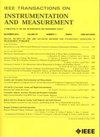A Robust Capsule Network With Adaptive Fusion of Multiorder Proximity for Intelligent Decoupling of Compound Fault
IF 5.6
2区 工程技术
Q1 ENGINEERING, ELECTRICAL & ELECTRONIC
IEEE Transactions on Instrumentation and Measurement
Pub Date : 2025-04-10
DOI:10.1109/TIM.2025.3554898
引用次数: 0
Abstract
With the advancement of sensor acquisition technology and deep learning algorithms, intelligent fault diagnosis based on equipment operation data has achieved significant progress in the industrial field. However, existing deep learning methods are only aimed at recognizing a single fault, ignoring the concurrence and coupling of various types of faults in industrial scenarios. The presence of compound faults leads to an exponential increase in the number of original fault modes, posing a major challenge in fault diagnosis. To solve this issue, this article proposes a zero-shot compound fault intelligent decoupling method based on a capsule network under the framework of adaptive fusion of multiorder proximity (AFMP) and generalized sparse norm. First, the capsule network with the ability to be sensitive to spatial features is utilized to build an intelligent decoupling model. Subsequently, a dynamic routing scheme with AFMP using Cauchy graph embedding is designed for learning mutual information of both local and global aspects of overlapping features of compound fault, which improves the representation learning ability of the decoupling model. Finally, the generalized sparse求助全文
约1分钟内获得全文
求助全文
来源期刊

IEEE Transactions on Instrumentation and Measurement
工程技术-工程:电子与电气
CiteScore
9.00
自引率
23.20%
发文量
1294
审稿时长
3.9 months
期刊介绍:
Papers are sought that address innovative solutions to the development and use of electrical and electronic instruments and equipment to measure, monitor and/or record physical phenomena for the purpose of advancing measurement science, methods, functionality and applications. The scope of these papers may encompass: (1) theory, methodology, and practice of measurement; (2) design, development and evaluation of instrumentation and measurement systems and components used in generating, acquiring, conditioning and processing signals; (3) analysis, representation, display, and preservation of the information obtained from a set of measurements; and (4) scientific and technical support to establishment and maintenance of technical standards in the field of Instrumentation and Measurement.
 求助内容:
求助内容: 应助结果提醒方式:
应助结果提醒方式:


